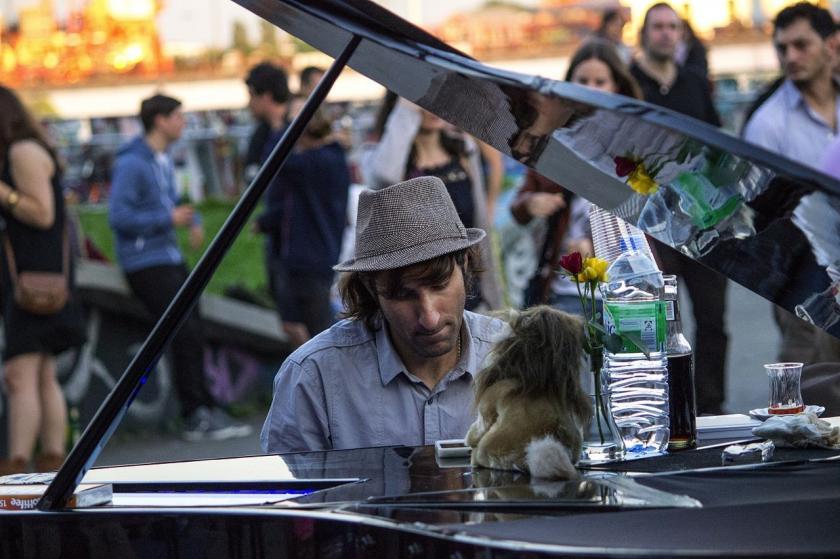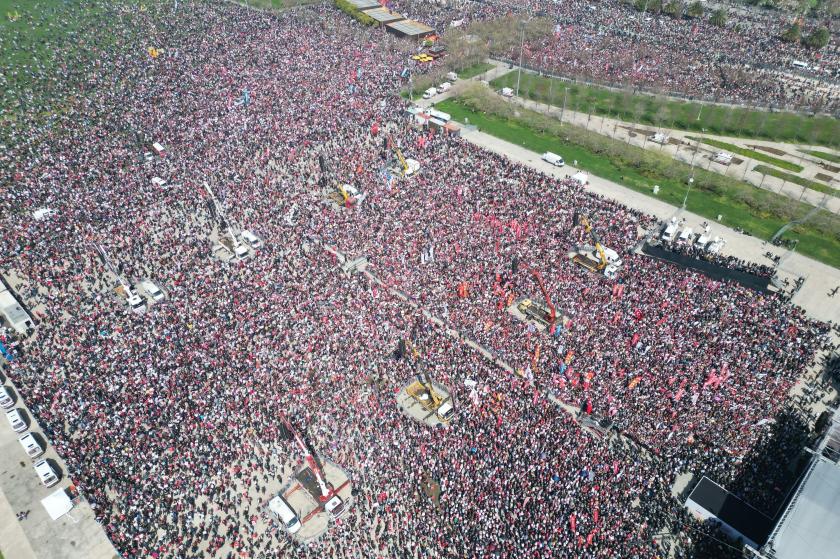The Kurdish question on the way to a critical election

Fatih Polat

Fotoğraf: Şerif Karataş/Evrensel
The Dicle Social Research Centre (DİTAM), a think tank founded in 2010 in Diyarbakır, hosted a meeting on 'Kurds and elections in Turkish politics'. Prof. Dr. Hamit Bozarslan, whose views we frequently refer to in Evrensel, attended the meeting in Diyarbakır via zoom from Paris, and Bozarslan's emphases were important.
Stating that Turkey is currently ruled by a paramilitarised structure, Bozarslan emphasised that Kurds have experienced a process of subjectification in Turkey since the 1960s. Bozarslan said that for Kurds there is a paradoxical and at the same time dialectical connection between 'oppression and liberation', and that the rights Kurds have today are not given, but earned.
Bozarslan stated that the victory of the opposition in the 14 May elections would bring 'a great breath of fresh air', and drew attention to the fact that a change in the government may not always mean a change in the dominant political paradigm.
The main purpose of this article is to analyse the approaches and possibilities regarding the Kurdish issue as Turkey is heading towards a critical election.
When we look at the discourses on the Kurdish issue in recent history of the politicians who have led the state at the highest level in Turkey, we see that conjunctural features are decisive in these discourses. This tells us that taking a stance, making interpretations and evaluations by overlooking the gap between discourse and reality in politics can lead to wrong conclusions.
For example, the DYP-SHP Coalition Government, which was formed at the end of the 1991 general elections, held its first cabinet meeting in Diyarbakır and Süleyman Demirel, the Prime Minister of the time, made the statement "We recognise the Kurdish reality" in this city in 1992.
After saying "The Kurdish problem is my problem" in Diyarbakır on 12 August 2005, Recep Tayyip Erdoğan, as the prime minister of the time, said in a speech in İstanbul: "What I said today was also said by Özal and Demirel 15 years ago...". However, 13 years after that speech in Diyarbakır, Demirel made the following statement to journalist Fikret Bila "When I said 'Kurdish reality', I said that there is a Kurdish people, we accept this. (...) As Prime Minister, I said that we recognise the Kurdish reality. In other words, I said that there are people of other races within the Turkish nation, and that this should be recognised and accepted. This is where the importance of the word comes from. But I did not see it as a national problem." (Fikret Bila, Demirel's 'Kurdish reality' and Erdoğan's 'Kurdish problem', Milliyet, 17 August 2005)
Erdoğan is going to the elections today, leaving Demirel behind by far, by signing a period in which Peoples' Democratic Party (HDP) co-chairs and mayors who were replaced by trustees were imprisoned, and by criminalising even an alliance with the HDP.
Kemal Kılıçdaroğlu, the presidential candidate of the Nation Alliance, which has come to the agenda as a restoration option, has not yet used this level of discourse. He and his party say that the solution to the Kurdish problem lies in parliament. However, we also know its limits.
The existence of the Labour and Freedom Alliance in this political picture is critical for the steps to be taken for the democratic solution of the Kurdish question after 14 May.
As important as the representation potential of the Kurds today is their experience of the difference between rhetoric and reality, which is full of great costs. Considering the trustee process and the case to shut down the HDP, the latter is perhaps even more important.Another important point that should be noted as much as the meaning of the conjunctural discourses of the capitalist parties in the face of history is the attitudes and stances of liberal circles in their approach to the solution. Some of the liberals, who in the past were the bearers of the propaganda that the AKP would solve the Kurdish problem, today point to the Nation Alliance and the Labour and Freedom Alliance as the solution address. Those who, with great enthusiasm, said 'Erdoğan and the AKP will solve the Kurdish problem' and left nothing unsaid to those who were sceptical, after this argument was completely bankrupt, today, with the same enthusiasm, say 'CHP will solve this problem'.
It seems essential to walk in the light of all these experiences, not only for 14 May, but also for the search for the right solution.
{{480008}}
{{484288}}
{{479566}}
{{470774}}




Follow Evrensel